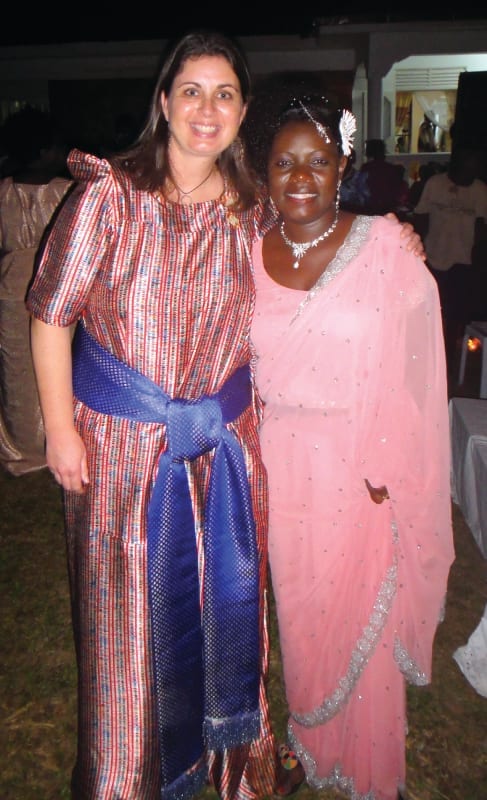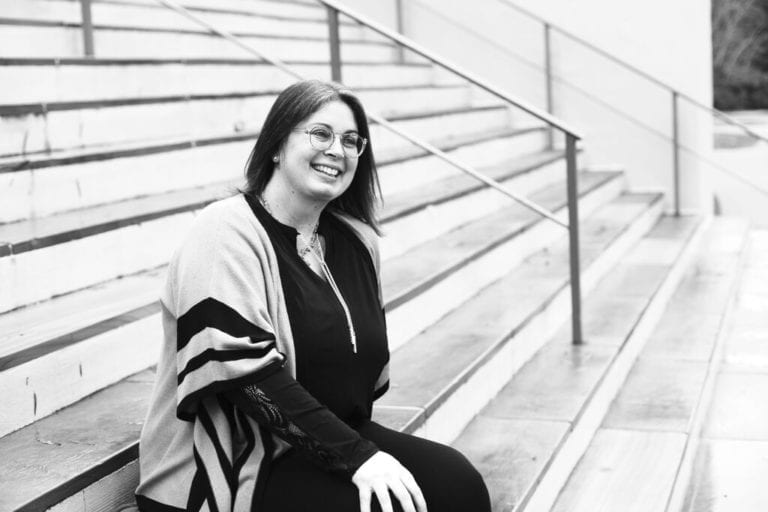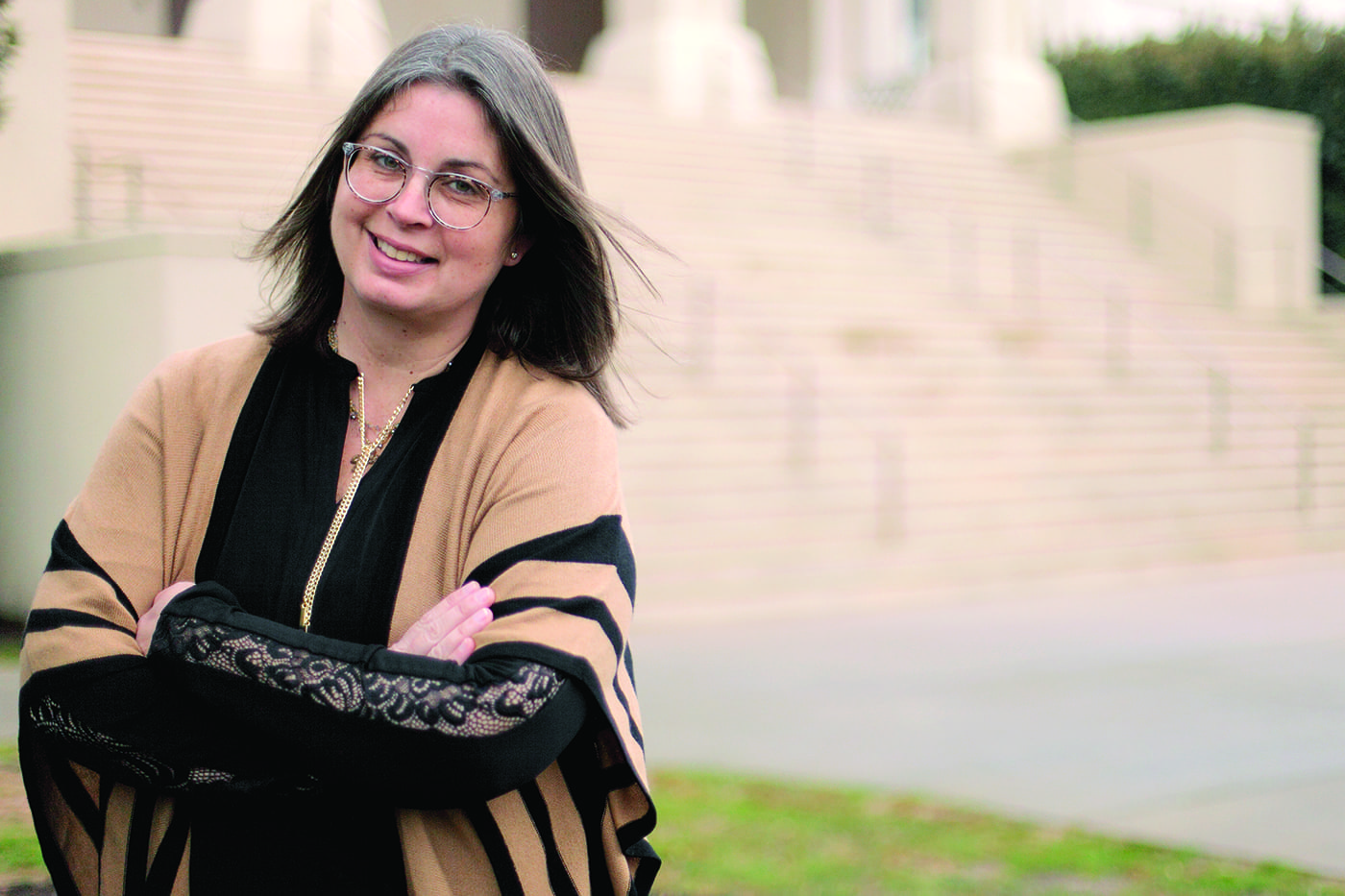God’s timing provides connections and new relationships around the world
What is a college admissions strategist?
A college admissions strategist is really someone who takes a student and a family and navigates college admissions — the end goal is finding the right fit school based on the social, emotional, physical, spiritual and intellectual needs of a student. So, I take a student and a family from Point A to B to find that right fit school.
Do you remain in contact with kids throughout their college experience?
I do. I like to stay with them because I like to think that we’ve become friends over the process. So, I’m interested in their success. Not only do I want to get them to school, but I want to get them through school. I’m actually delighted, on Thanksgiving and Christmas, when I open my phone, and I have texts from students, “Merry Christmas, Mrs. Patrick.” Students tell me that I’ve made a difference in their lives. That’s huge.
Where do the students come from?
I’m currently serving students from nine different states and three different countries.
Education has been a large part of your life journey. What led you to start one of the first nonprofit elementary schools in the region?
Well, there was a time when my children were in a Montessori school, actually South Carolina’s oldest Montessori school. I wanted to see them continue into Montessori in the elementary ages, but there were not any schools around our community that met our family’s needs. The private schools and the public school just didn’t seem to fit at that time. So, I was able to get people to buy into a vision, and we started Island Montessori Day School.
And you were the headmistress?
Correct. That wasn’t my intention. My intention was to be the founder. When we hired someone to come in as a consultant, he looked at me and said, “You realize you are going to have to be the head of school.” I said, “No, no, no, no, I’m the founder of this.” He said, “Well, no one else has the vision.” So we started a nonprofit elementary school, the first in that region. We were then offered a corporate merger by another school within that first year. That school exists today through eighth grade, and it’s thriving.
From there to Tanzania?
Through that experience, I stumbled upon Tanzania. A dear friend of mine and her husband had fallen in love with Tanzania and had started to develop the thought process for an orphanage. I was closing down a classroom and had to do something really meaningful with those materials in that classroom. It was a very turbulent time in the school with corporate restructuring, and I knew it was an important step in the process. I reached out to my pastor and said, “Do you know of a school anywhere that might need some materials?” He said, “Of course,” laughed and then said, “Well, Darcie, that takes months to put together.” I said, “I understand that, but I’ll call you next week to see if you have come up with anything.” Sure enough, I get a call from him about three days later. He said, “You will never believe this, but I just received an email from the Archbishop of Tanzania who said he is desperately looking for alternative learning materials for his school.” I said, “That’s great. We’ve got a classroom.” I went down the hall and asked two teachers if they wanted to go to teach the teachers in Tanzania how to use the materials. I basically was trying to figure out how to convince my husband to go and be the Sherpa for this trip, and that worked out as well. So when he was there, he met the head of school, Alice Nalugwa. He told me, “Alice will be a meaningful friend of yours.” Soon afterward, I started consulting with Alice. One of my life’s highlights definitely was being the maid of honor in her wedding in Uganda two years ago.
When the Archbishop of Tanzania reached out to your pastor and the “needs match” was made, did you get on an airplane?
No I didn’t. I had no interest in going. I was more or less trying to cultivate other people to buy into the vision to go. I knew it was on the heart of one teacher and then another. I thought, “Well, I want this for my husband,” but I had no interest in going. It was a time when I was renegotiating my contract, frankly, with the school. I was able to renegotiate $10,000 into the contract to be used basically to fund this project.
So, your husband and two school teachers get on an airplane, fly to Tanzania. What were they doing?
Rick and Joni Vanderslice, who had founded The Valentine Project Children’s Orphanage, invited them to join their team.

Darcie Patrick served as maid of honor for bride Alice Nalugwa in Uganda two years ago.
Tell me about The Valentine Project Children’s Orphanage.
It is an amazing project birthed from a vision. Rick Vanderslice is a urologist in Hilton Head. Joni is a designer. Rick went on a medical mission trip and fell in love with the people. He kept telling Joni, “You’ve got to go, you’ve got to go.” When the Archbishop came to Hilton Head, and I was invited to join them for dinner, I overheard him telling Joni, “You need to come to Tanzania.” She said, “Really, you need a designer in Tanzania?” And he said, “No, I need someone to empower the women in Tanzania.” She and her husband and two other people were going. So, it just happened to all work out. This group with the school met up with The Valentine Project Children’s Orphanage team. While they were there, the teachers dove right into the classrooms. The goal was to teach the Tanzanian teachers there how to use the material. My husband was making shelving for the classroom. He worked alongside a Muslim named Ollie who was probably 4-foot-8 and was the strongest person he has ever met in his life. All of the great things that have happened have come from relationships. I look at people like that, as relationships, not as contacts.
How many years has The Valentine Orphanage been in place?
About five years ago the vision was born. They broke ground two years ago. They now have 20 children that are in Dar es Salaam that are in their care. It is an amazing, amazing project. While Hilton Head has rallied around the project, Joni, one of the founders with Rick, has brought people in from her design community, from all over the country that fund the different homes and the children. It’s a powerful, powerful movement. Tanzania is an important country, a peaceful country. It is 50 percent Christian, 50 percent Muslim, and they have a national language of Swahili. While many African countries are splintered into tribes and different languages, Tanzania is kind of Switzerland in Africa.
So, the 20 children there, how did they become orphans?
The numbers are staggering. There are millions and millions of orphans in Tanzania alone. The United Nations defines a double orphan as both parents. So the children that are in The Valentine Project are double orphans, meaning both parents are deceased. In Africa, oftentimes, there are single orphans, meaning if the father dies and the mother has no way of taking care of the children, those children are often given away to relatives, et cetera. But in the Valentine Center, both parents are gone.
Is there a succession plan for the children in the Valentine Project?
Currently the Valentine Project serves only 3- to 6-year-olds. But yes, Alice Nalugwa, my friend who is over St. Augustine English Medium School, will accommodate the children from first grade through eighth grade. So, the succession plan is to go into that school and then hopefully into a high school. As the children age, the funding there and the goal is to have these children fully educated.
Is there a wait list? I mean 20 kids doesn’t sound like a tremendous number.
Yes. I do know that everything is kind of based on that power of ten. So, they have one mama for ten children, and every housing structure is based on ten children. It’s a hard line to take to be able to say, “No, there’s not room at the inn at this time,” but you have to do it right. There has to be a model.
Where did they get the name Valentine Project?
Archbishop Mokiwa Valentine. A lot of the giving comes around February with Valentine’s Day. But the name itself is from the Archbishop Mokiwa Valentine.
And is there a website that people can go to?
There is. It’s valentineproject.org.
Dar es Salaam has great wealth and abject poverty. Have you gone there yet?
I have. I’ve been there a few times.
Is adoption a part of the project, the Valentine Project?
No. Unfortunately, you have to reside in Tanzania for three years to adopt a child. So it’s more of an emotional adoption that occurs. When my husband went the first time, he came home and said, “There’s now a boy that calls me baba, and his name is Nesta.” He named himself after a soccer player. His real name was Masanja. But it was Masanja Masanja because he didn’t know who his father was. And, to this day, I am mama and my husband is baba. Kevin and I bought him a cow when he got married because he needed the dowry. We bought him one cow; my father bought a cow, and Rick and Joni Vanderslice bought a cow as well.
What is Girls Pads Period?
This is a project birthed by my daughter, Ella, who started a service project. She rallied her four best friends at the time, and one was from Ghana. They collected sanitary napkins for girls in Africa. The girl from Ghana helped validate that there is a real problem for girls who miss school because they are menstruating. They don’t have sanitary products, the stigma attached, et cetera. So, they decided they were going to do a pad fundraiser and reached out to all the girls at their school. Well, within a month, money was pouring in, and they had collected over 20,000 sanitary napkins. The Baltimore news featured them on their news story and, sure enough, Girls Pad Period was birthed. The school they chose to donate to was Alice’s School in Tanzania. The big question that the adults were asking her was, “what’s next?” Two and a half years later while at Wofford College, Ella submitted a proposal for a nonprofit and she pitched it to SPACE, their innovation incubator. They loved it, and its been rebirthed. Girls Pad Period is still in its infancy as part of SPACE. The first fundraising project was taking baskets they brought that were made in Africa and using profits to help partner with a company in Africa that is making sanitary products there. They sought to avoid sending products because of huge taxation. We call it a TIA charge – “This Is Africa.” There’s always that extra fee.
There has been a huge ripple effect from relationships in your life?
Right. By Rick Vanderslice going to Tanzania, the ripple effect for so many different people is unthinkable. I believe in that power, the power of one. If you are making a difference in one person’s life, whether it’s an orphan, a young girl in Africa, or again, that one student I’m working with now, it can change a pattern, a person, a family. It can make a change. I don’t know, maybe that sounds a little too big, but I believe in the power of one.
How long have you and Kevin been married?
Twenty-two years.
And how did you meet?
Freshman year, Elon College. The fight for a decade was did we first kiss on the front steps of his dorm or my dorm. He swore it was his. I swore it was mine. And, finally, I said, “If you did not walk me home that first time, I’m officially mad.” So, we kissed on my dorm steps in 1988.
Look back on your life, for the next week if you can be any age, what age would that be and why?
Twenty-five, because that is when my husband and I got married. We had a ball. You know we could just do anything. We did so many neat things together with no real responsibilities … we traveled. And it was a really great time for he and I to build a relationship, and then to build a family upon that foundation. So, it was a really fun time.
Is there one thing that is pivotal to your wellbeing; to charge or recharge?
Prayer.
What lesson would you want others to know without having to learn it the hard way?
Don’t be afraid to burn bridges of people that are not healthy.
What do you want to be remembered for?
I would like to be remembered for helping in the education arena. I want to really make a difference and help people – men, women, and children – find a path to their education, to reach their individual goals.
Where do you see yourself in 20 years?
Truthfully, I would like to be writing. I would like to be an author. I think it would be a bigger, larger platform or forum to be able to reach people. I think what I do right now with students and consulting for their college path is a template that can be replicated on a larger scale, so kids entering college don’t have to feel totally lost. The average student receives 33 minutes of college advising from guidance counselors. You know that’s just not enough. There is so much information out there that frankly is false. So, I’d like to bring a model to a larger group of people that might not be able to afford the services some are able to have.
If you could give a young woman a piece of advice that would help her in her life journey, what would that be?
I would say, “Don’t be afraid to be bold. Don’t be afraid to go where you want to go, too.” I believe that God has a plan for every person, every young person, and every young woman. I think it’s especially important for a young woman to find her path. Find what makes them happy and what brings them joy so they can have it before they have a family and get watered down and saturated. Like I feel they have to remain who they are. I would just say, “Don’t be afraid to go for it; just go for it. Learn to fall.” That is probably the best advice I could give, and I do give my own daughter.


